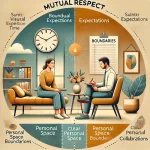Teen Suicide in South Africa: What We’re Missing
From 9 to 16 February 2025, South Africa is observing Teen Suicide Prevention Week—a crucial time to raise awareness about the devastating reality of teen suicide. It’s a crisis that’s growing—but often, we don’t talk about it until it’s too late.
Teen Suicide Prevention Week is an opportunity to break the silence, challenge dangerous myths, and start real conversations about what’s happening beneath the surface. The truth is, many young people are struggling in ways we don’t always see, and recognizing the signs can be the difference between life and death.
The Harsh Reality: Teen Suicide in South Africa
Teen suicide rates in South Africa are alarmingly high. According to the South African Depression and Anxiety Group (SADAG):
- 9% of teenage deaths in South Africa are due to suicide.
- Suicide is the second leading cause of death among young people aged 15-24.
- Over 20% of teens have considered suicide at some point.
- 77% of teens who die by suicide showed warning signs—but they were either missed or ignored.
With so many young lives at risk, the question we need to ask is: Why aren’t we talking about this more?
Myths About Teen Suicide That Need to Be Challenged
One of the biggest barriers to preventing teen suicide is the misinformation surrounding it. Here are some of the most common (and dangerous) myths:
🚫 “They’re just doing it for attention.”
✅ Reality: Suicidal thoughts are not attention-seeking behaviors. They are a cry for help. Even if a teen talks about self-harm or suicide without acting on it, it does not mean their pain is not real.
🚫 “They didn’t seem depressed.”
✅ Reality: Not every suicidal teen looks depressed. Some hide their struggles through humor, overachievement, or even social media.
🚫 “If we talk about it, we’ll put the idea in their head.”
✅ Reality: Talking about suicide openly does not cause it—it prevents it. When we avoid the topic, teens feel even more alone in their thoughts.
🚫 “Only ‘troubled’ kids think about suicide.”
✅ Reality: Suicide affects teens from all backgrounds. Academic pressure, family stress, bullying, trauma, and social isolation can all contribute to suicidal thoughts.
The Warning Signs We Often Overlook
Most teens who attempt suicide show warning signs first, but many adults don’t recognize them until it’s too late. Some red flags include:
🚩 Sudden Personality Shifts – A normally outgoing teen becomes withdrawn, moody, or unusually reckless. 🚩 Giving Away Possessions – They start handing out personal items they once valued. 🚩 Changes in Sleeping or Eating Habits – They may stop eating regularly, sleep too much, or barely sleep at all. 🚩 Self-Destructive Behavior – Increased risk-taking, self-harm, or sudden substance use. 🚩 Talking About Feeling Hopeless – Phrases like “What’s the point?”, “You’d be better off without me”, or “I just want to disappear” should never be ignored.
Even small hints on social media posts can be cries for help.
How to Talk to a Teen Who Might Be Struggling
If you suspect a teen in your life might be struggling, don’t ignore it. Many adults hesitate to start the conversation because they worry about saying the wrong thing. But doing nothing is worse.
🔹 Ask Directly: “Are you feeling overwhelmed?” or “Have you been thinking about hurting yourself?” 🔹 Listen Without Judgment: Avoid responses like “Don’t be dramatic” or “Just get over it.” Instead, validate their feelings with “That sounds really hard—I’m here for you.” 🔹 Don’t Dismiss Their Pain: Even if you don’t understand why they feel that way, their emotions are real to them. 🔹 Encourage Professional Help: Let them know that talking to a psychologist or counselor is not a sign of weakness—it’s a way to feel better.
Where to Get Help in South Africa
If you or someone you know is struggling with suicidal thoughts, help is available:
☎ SADAG Suicide Crisis Helpline: 0800 567 567 (24/7)
📱 SADAG SMS Helpline: SMS 31393 for a callback
📞 Lifeline South Africa: 0861 322 322
💻 Find a Clinical Psychologist: Seeking therapy can provide professional support tailored to an individual’s needs.
Final Thoughts: We Can’t Stay Silent
Teen suicide is not just a statistic—it’s a reality that is affecting South African families right now. By challenging harmful myths, recognizing warning signs, and creating safe spaces for open conversations, we can help prevent unnecessary loss.
If you’re a parent, teacher, sibling, or friend—you could be the person who makes a difference. Let’s make sure no teen feels like they have to face this battle alone.
💙 Share this post to spread awareness. The conversation could save a life.




